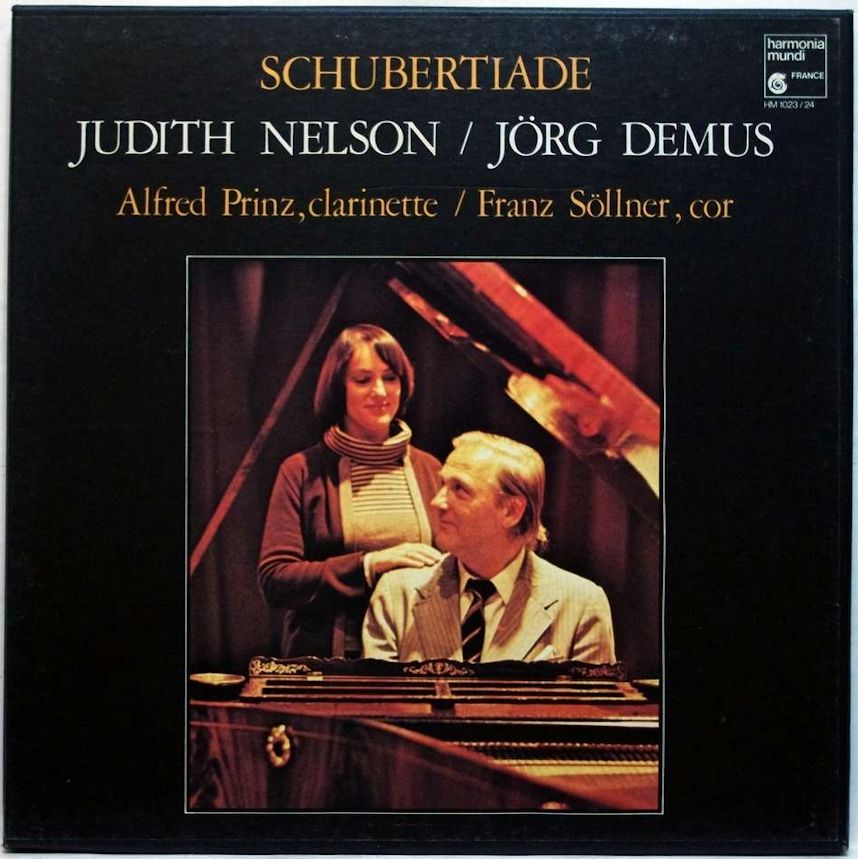

| The American soprano, Judith (Anne) Nelson
(née Manes) (September 10, 1939 - May 28, 2012), was the daughter
of musical parents. She studied music at St. Olaf College in Northfield,
Minnesota, where she became a leading singer in its noted choir, and
obtained her BA Music degree in 1961. On August 5, 1961, she married Alan
H. Nelson. When she moved with her husband to Berkeley in 1962, she sang
with the UC Berkeley Collegium and the Berkeley Chamber Singers. Her principal
voice teachers were Thomas Wikman in Chicago, James Cunningham at Berkeley,
and Martial
Singher in Santa Barbara. She also studied piano for 12 years. She
sang with music groups of the University of Chicago and the University
of California at Berkeley. An Alfred Hertz Memorial Fellowship of the University of California at Berkeley in 1972-1973 enabled Nelson to travel throughout Europe. She made her debut in 1973 in Paris, and began her career as a soloist, traveling in England and continental Europe. She joined the Five Centuries Ensemble, and met Geneviève Thibault de Chambure, who became her Parisian “angel.” She was a founding member of Concerto Vocale, with René Jacobs, William Christie, and Wieland Kuijken, and a soprano soloist with Christopher Hogwood’s Academy of Ancient Music. She made her operatic debut in Brussels in 1979, singing Drusilla in Monteverdi’s L’incoronazione de Poppea with Alan Curtis, a performance repeated at the historic La Fenice in Venice. Nelson performed and recorded extensively as a soloist throughout North America (including Mexico), Europe, and Asia in concerts, operas, and for radio and television. She was acknowledged as one of the world’s leading singers of the Baroque repertoire as the early music revival began. She sang with most of the major Baroque ensembles and orchestras including the Academy of Ancient Music, Concerto Vocale, the Bay Area’s American Bach Soloists, the San Francisco Bach Choir, Toronto’s Tafelmusik, Joshua Rifkin and The Bach Ensemble, and Massachusetts’ Aston Magna Festival. In the San Francisco Bay Area, Nelson was one of the founders of the Philharmonia Baroque Orchestra, and was on its Board of Directors. She sang and recorded often with the orchestra, and its first office was located in her home. She sang on Philharmonia Baroque Orchestra’s debut recording, of George Frideric Handel’s Apollo and Daphne, as well as in other works by Handel and Purcell. On stage, she sang several operas, including Handel’s Teseo at the Boston Early Music Festival, and Sant’Alessio at the Nakamichi Festival in Los Angeles. With harpsichordist Laurette Goldberg and actress Rella Lossy, she formed the Elizabethan Trio. The singer Anna Carol Dudley was invited to join the group, renamed Tapestry. They toured every year with performances combining Renaissance and Baroque music with literature from various countries. Joshua Kosman wrote, “In music of Bach, Handel and countless other composers of the 17th and 18th centuries, Nelson brought a blend of technical panache and expressive fluency to her performances. The graceful elegance of her singing, combined with an ability to traverse the most challenging passages with complete assurance, made her regular appearances count among the reliable delights of the Bay Area's musical life.” Nelson performed with major symphony orchestras, including the Atlanta Symphony Orchestra, Baltimore Symphony Orchestra, Los Angeles Philharmonic Orchestra, National Symphony Orchestra, Saint Louis Symphony Orchestra, and San Francisco Symphony Orchestra. Although she was particularly noted for her performance of Baroque music, she also introduced compositions by American and English Composers. 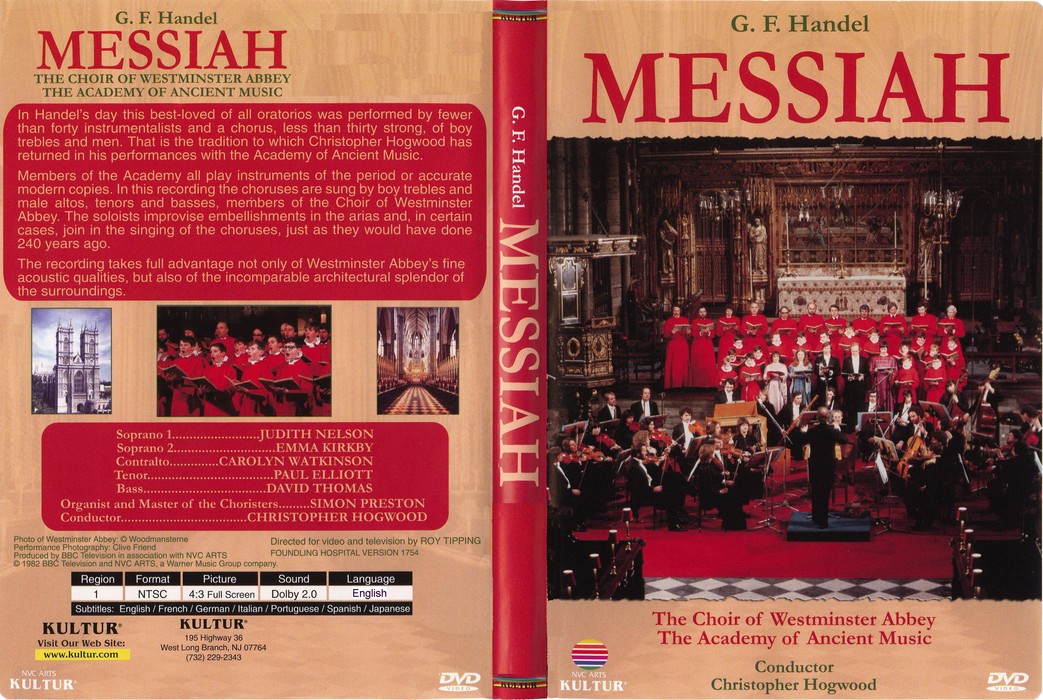
She has some 70 recordings to her credit, including LPs, cassette tapes, and CDs, many on the Harmonia Mundi and L’Oiseau-Lyre labels. Her recordings with such conductors as Hogwood and John Eliot Gardiner helped usher in a new era of historically informed performances of Baroque music. Of particular note is her role as first soprano on the Hogwood recording of Messiah, recorded in Westminster Abbey in 1980 for BBC TV, and now released on DVD on the Kultur label [shown above]. The classical performance magazine Music (January 2012) ranks that release as number 25 in a list of “The 50 Greatest Recordings of All Time.” Other notable recording include: Belinda in Dido and Aeneas (Chandos) Handel's Alceste and La Resurrezione; Haydn Canzonets and Cantatas. She also performed on radio in France, Belgium, Holland, Federal Republic of Germany, Italy, Austria. Scandinavia, several Promenade Concerts on the BBC, and on Television. In September 1989, in recognition of her contributions to music, St. Olaf College conferred upon her the honorary degree of Doctor of Fine Arts. She died peacefully on May 28, 2012 at the close of a 12-year battle with Alzheimer’s disease. She was 72. -- Edited from the Bach Cantatas website [Text
only - photos added from other sources]
-- Throughout this webpage, links refer to my interviews elsewhere on my website. BD |
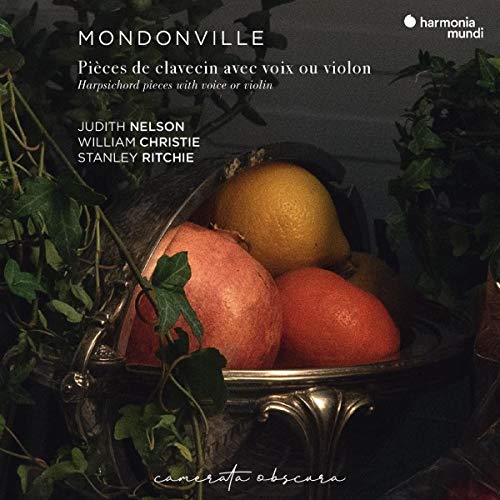 Once in awhile, a performer will agree (and even
be very glad) to have the conversation after a performance. This
webpage presents one of those times. Soprano Judith Nelson was
singing with Music of the Baroque in March of 1992, and decided that meeting
after the concert was best for her. Being a night owl, I jumped at
this suggestion, and here is what was said late that evening . . . . . .
.
Once in awhile, a performer will agree (and even
be very glad) to have the conversation after a performance. This
webpage presents one of those times. Soprano Judith Nelson was
singing with Music of the Baroque in March of 1992, and decided that meeting
after the concert was best for her. Being a night owl, I jumped at
this suggestion, and here is what was said late that evening . . . . . .
.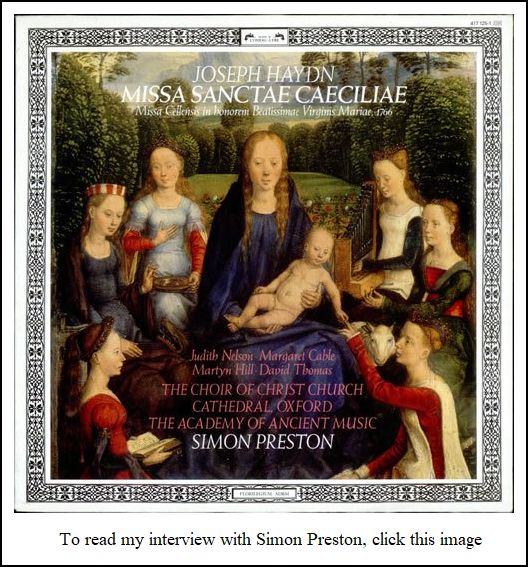 BD: Now you’re talking about all
kinds of instruments, and the instruments have changed, but the instrument
in the throat really hasn’t changed that much.
BD: Now you’re talking about all
kinds of instruments, and the instruments have changed, but the instrument
in the throat really hasn’t changed that much.John Jenkins (1592-1678) was a long-active
and prolific composer, whose many years of life -- spanning the time
from William Byrd to Henry Purcell -- witnessed great changes in English
music. He is noted for developing the viol consort fantasia, being
influenced in the 1630s by an earlier generation of English composers
including Alfonso Ferrabosco the younger, Thomas Lupo, John Coprario
and Orlando Gibbons. 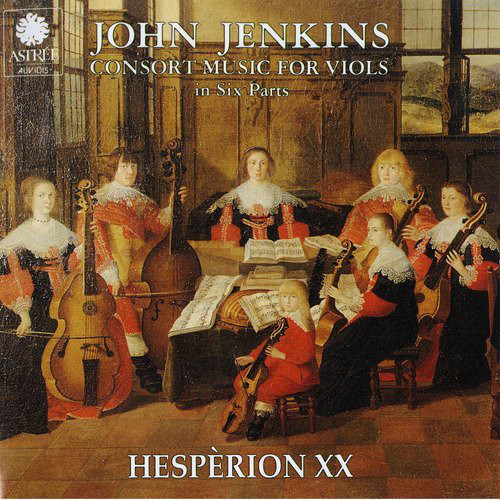 Jenkins composed numerous 4, 5, and 6 part fantasias for viol consort,
almans, courants and pavanes, and he breathed new life into the antiquated
form of the In Nomine. He was less experimental than his friend
William Lawes. Indeed, Jenkins's music was more conservative than that
of many of his contemporaries. It is characterized by a sensuous lyricism,
highly skilled craftsmanship, and an original usage of tonality and
counterpoint.
Jenkins composed numerous 4, 5, and 6 part fantasias for viol consort,
almans, courants and pavanes, and he breathed new life into the antiquated
form of the In Nomine. He was less experimental than his friend
William Lawes. Indeed, Jenkins's music was more conservative than that
of many of his contemporaries. It is characterized by a sensuous lyricism,
highly skilled craftsmanship, and an original usage of tonality and
counterpoint.
Little is known of his early life. The son of Henry Jenkins, a carpenter who occasionally made musical instruments, he may have been the "Jack Jenkins" employed in the household of Anne Russell, Countess of Warwick in 1603. The first positive historical record of Jenkins is amongst the musicians who performed the masque The Triumph of Peace in 1634 at the court of King Charles I. Jenkins was considered a virtuoso on the lyra viol. King Charles I of England commented that Jenkins did "wonders on an inconsiderable instrument." When the English Civil War broke out in 1642 it forced Jenkins, like many others, to migrate to the rural countryside. During the 1640s he was employed as music-master to two Royalist families, the Derhams at West Dereham and Hamon le Strange of Hunstanton. He was also a friend of the composer William Lawes (1602–1645), who was shot and died in battle at the siege of Chester. Around 1640 Jenkins revived the In Nomine, an archaic form for a consort of viols, based upon a traditional plainsong theme. He wrote a notable piece of program music consisting of a pavane and galliard depicting the clash of opposing sides, the mourning for the dead, and the celebration of victory after the siege of Newark (1646). In the 1650s Jenkins became resident music-master of Lord Dudley North in Cambridgeshire, whose son Roger wrote his biography. It was in these years, during the Commonwealth under Oliver Cromwell, in the absence of much competition or organized music-making, that Jenkins took the occasion to write more than 70 suites for amateur household players. After the Restoration he obtained a place as a musician to the Royal Court. However, the viol consort was less fashionable in the court of Charles II. Something of Jenkins's own temperament is indicated by his setting the religious poetry of George Herbert to music. Like Joseph Haydn, he was a pious, reticent, and private person. Workmanlike and industrious in composition, he wrote dances by the cart-load, according to Roger North, an English lawyer and amateur musician. |
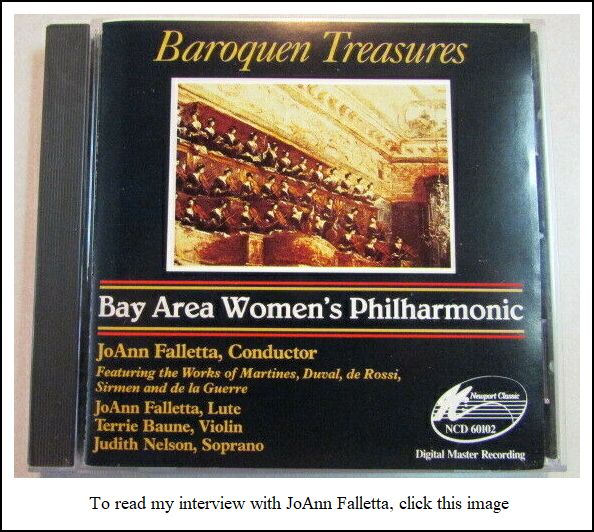 BD: I understand you’ve also done some world premieres.
BD: I understand you’ve also done some world premieres.
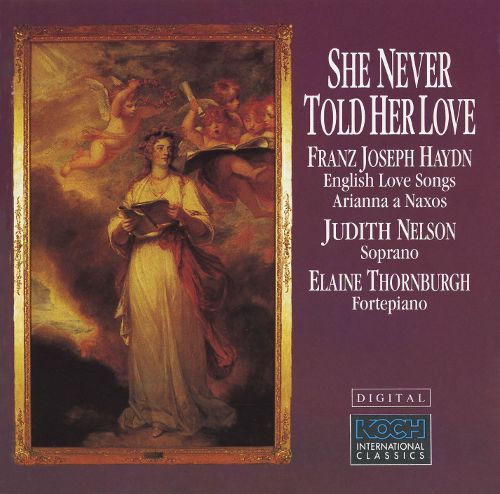 JN: Going back to other question about
whether it is related to this music, if you’re really used to doing
Renaissance music, or Mediaeval music with all the complicated rhythms
and all the poetry and the rhyme schemes, maybe that discipline transfers
more to contemporary music, because you really get into ways of thinking
about these things. They’re much more complex when you get into
the eighteenth century and Handel. It’s much less complex now, much
more immediately accessible. Machaut and people like that wrote really
complex stuff, and so a lot of the contemporary music would slot into
either end. I find that if I haven’t done any new music for a while,
I actually get out of the ways to break up rhythms and the ways to think
of intervals. I have to work at it!
JN: Going back to other question about
whether it is related to this music, if you’re really used to doing
Renaissance music, or Mediaeval music with all the complicated rhythms
and all the poetry and the rhyme schemes, maybe that discipline transfers
more to contemporary music, because you really get into ways of thinking
about these things. They’re much more complex when you get into
the eighteenth century and Handel. It’s much less complex now, much
more immediately accessible. Machaut and people like that wrote really
complex stuff, and so a lot of the contemporary music would slot into
either end. I find that if I haven’t done any new music for a while,
I actually get out of the ways to break up rhythms and the ways to think
of intervals. I have to work at it!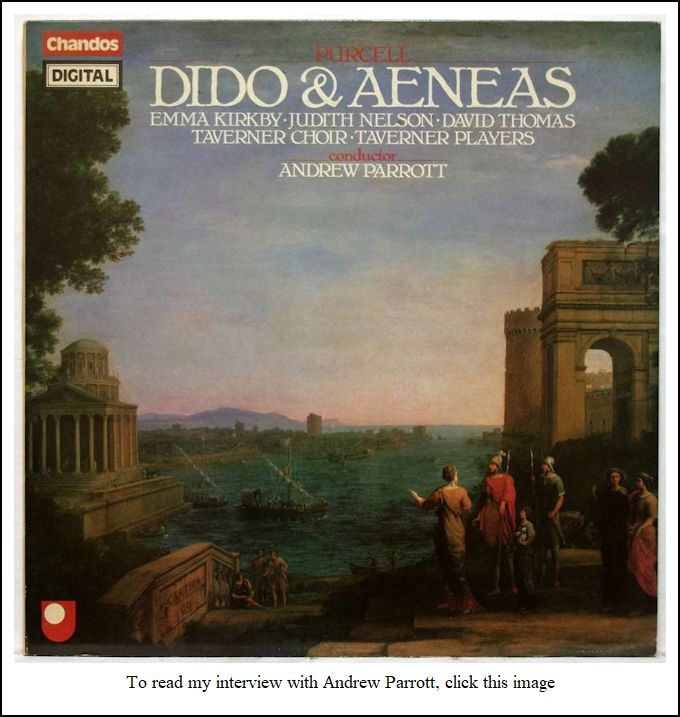 BD: Are you pleased with the discs that have been
issued so far?
BD: Are you pleased with the discs that have been
issued so far?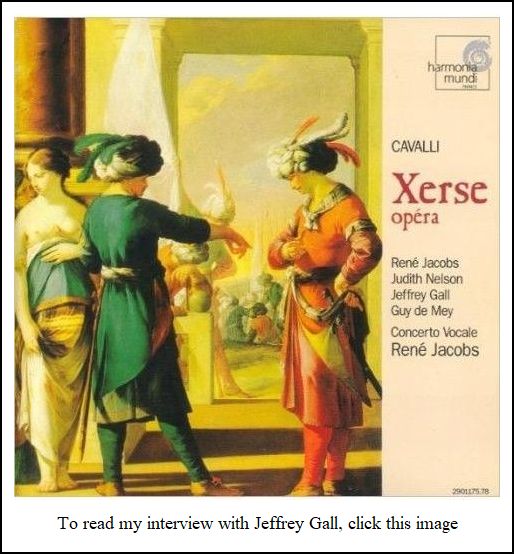 JN: I don’t do much opera. I occasionally do
early operas — Handel and earlier.
In fact, I’ve done roles nobody’s ever heard of because nobody’s ever
heard of the operas. [Laughs] That’s been fun, and I’ve
been so lucky to beam in on them. As to how I divide my time, my
kids are grown up now. When they were little, we also always had somebody
living in our home — a student usually.
My husband teaches at the university, and when I was not off somewhere
the student would have nothing to do, and when I was gone, she’d have
lots to do. That was the way we lived, but I didn’t go away for
longer than a week at a time if I could help it, and usually it was
less than that. For years I didn’t do any Messiahs close
to Christmas because Christmas was the family time, so we all had to be
home. I would never accept a Messiah on December 23rd, which
I would do now.
JN: I don’t do much opera. I occasionally do
early operas — Handel and earlier.
In fact, I’ve done roles nobody’s ever heard of because nobody’s ever
heard of the operas. [Laughs] That’s been fun, and I’ve
been so lucky to beam in on them. As to how I divide my time, my
kids are grown up now. When they were little, we also always had somebody
living in our home — a student usually.
My husband teaches at the university, and when I was not off somewhere
the student would have nothing to do, and when I was gone, she’d have
lots to do. That was the way we lived, but I didn’t go away for
longer than a week at a time if I could help it, and usually it was
less than that. For years I didn’t do any Messiahs close
to Christmas because Christmas was the family time, so we all had to be
home. I would never accept a Messiah on December 23rd, which
I would do now.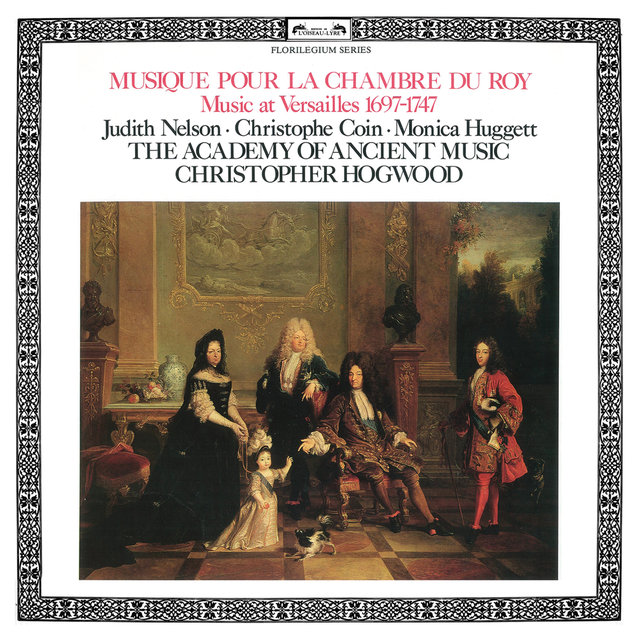 JN: For a choir, we were striving for perfection and
some sort of religious experience. It had its goods and its bads.
I often wished they had done a couple of concerts. In fact,
when they did their home concerts, it was still the same so if the people
at the college come to the choir concerts, they would hear the same
pieces for every concert. In the end, though, you know that stuff
awfully well, and when you tour it makes a really nice effect. I
loved being in the choir. I love choral singing, too. I hear
a lot of singing teachers tell their students not to sing in choirs, but
you can certainly sing in choirs if they don’t ask you to sing horrible
things, where you have to play with your voice or force yourself into
something that can hurt the cords.
JN: For a choir, we were striving for perfection and
some sort of religious experience. It had its goods and its bads.
I often wished they had done a couple of concerts. In fact,
when they did their home concerts, it was still the same so if the people
at the college come to the choir concerts, they would hear the same
pieces for every concert. In the end, though, you know that stuff
awfully well, and when you tour it makes a really nice effect. I
loved being in the choir. I love choral singing, too. I hear
a lot of singing teachers tell their students not to sing in choirs, but
you can certainly sing in choirs if they don’t ask you to sing horrible
things, where you have to play with your voice or force yourself into
something that can hurt the cords.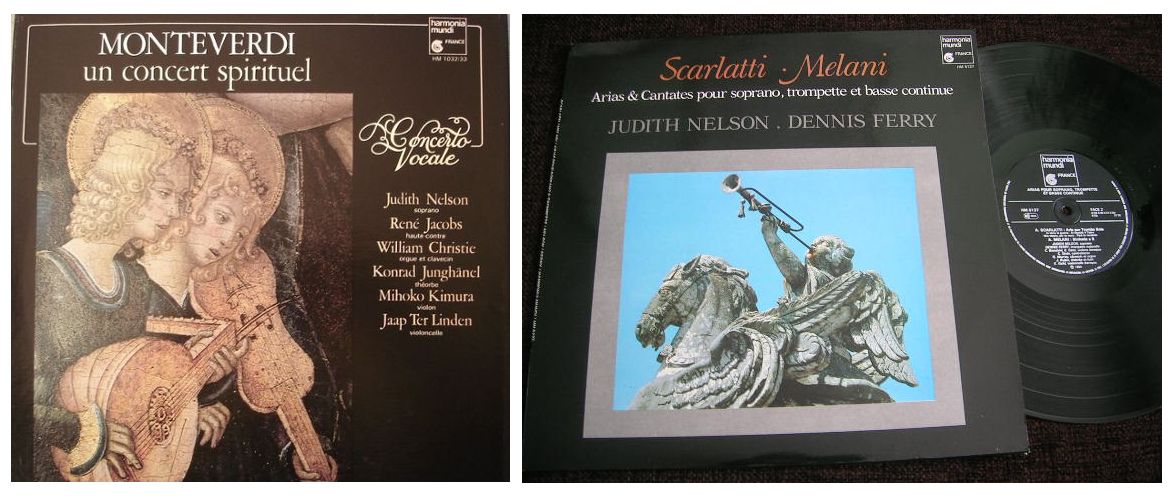
© 1994 Bruce Duffie
This conversation was recorded in Chicago on March 16, 1992. Portions were broadcast on WNIB in 1994. This transcription was made in 2019, and posted on this website at that time. My thanks to British soprano Una Barry for her help in preparing this website presentation.
To see a full list (with links) of interviews which have been transcribed and posted on this website, click here.
Award - winning broadcaster Bruce Duffie was with WNIB, Classical 97 in Chicago from 1975 until its final moment as a classical station in February of 2001. His interviews have also appeared in various magazines and journals since 1980, and he now continues his broadcast series on WNUR-FM.
You are invited to visit his website for more information about his work, including selected transcripts of other interviews, plus a full list of his guests. He would also like to call your attention to the photos and information about his grandfather, who was a pioneer in the automotive field more than a century ago. You may also send him E-Mail with comments, questions and suggestions.